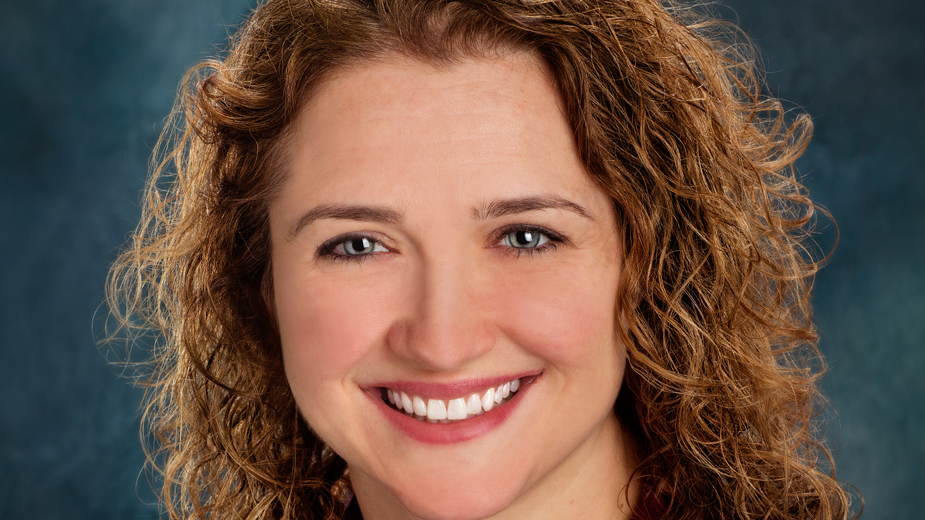Q&A on Commercial Roofing Projects
We know the importance of checking with the Better Business Bureau and investigating a contractor before hiring them for a residential roofing job. (READ Q&A Part 1) But what about commercial roofing projects? Is there as much of a gap in quality in commercial roofing companies that homeowners may suffer from fly-by night operations or storm chasers?
Sam Boak: CEO of Boak & Sons Inc., Austintown: As for commercial roofing companies going out and knocking on doors, trying to get work, usually the newer companies are doing that. The older reputable commercial roofing contractors that have been here for years, we’re not. We’re waiting for the phone to ring. When you’re ready, you’ll call us because you’ve heard our reputation. We tell business people to talk to other business people in our community, and contact your insurance company.
Insurance companies, a lot of them, especially if you’re a larger commercial business, have had dealings with roofing contractors and they know what contractors they’ve had problems with for insuring, or where there’s been claims registered against them.
So if you’re asking how does a business owner find out about a roofing contractor, contact your insurance company or insurance agent and run names by them, because they know a lot of what is happening out there and can give you a good read-out.
Do you have horror stories to tell of commercial jobs that have been done poorly?
Boak: Yes. Without naming names, the developer of a shopping plaza in the area hired an-out-town commercial roofing contractor and mid-way through the project, the contractor had received most of the money for the job, and didn’t finish the job. We were called in to finish that job and unfortunately it will cost that general contractor probably $100,000.
That happens a lot?
Boak: It’s been happening more and more each year.
Would you say it’s primarily with out-of-town contractors coming in that cause the problem?
Boak: It’s 50/50. It’s as many out-of-town roofing ontractors as it is contractors here that keep changing their name, or plan on not being around here in a few years.
What are some of the big commercial jobs you’ve done locally?
Boak: In the last year or so, we’ve done the post office in downtown Youngstown. We’re presently doing the Mahoning County Courthouse, the city hall annex building next to the courthouse. We’ve done a lot of work with Youngstown State University. YSU is an excellent customer of ours, and a lot of other new construction is happening as well.
When it comes to commercial projects, there are different types of roofs. Pitch roofs, flat roofs: Why the difference?
Boak: Some is for design, some is for the logistics of where you put the heating and air conditioning units. On a shingled roof or a pitched roof as you would call it, the HVAC units have to be on the side of the building or in the building somehow. Where you build a building with a flat roof, you can put the heating and air-conditioning units on top of the roof, and allow for better accessibility for those types of factors.
What’s the advantage beyond the heating and air conditioning unit? Is it cheaper to have a flat roof? Does it depend on how big the building is?
Boak: It’s just the logistics of how big that building is. It’s the width of the building and the length. You can put a flat roof on if it’s wider or longer. You can get better coverage for it in a sense.
How has the roofing business changed in the 30-plus years you’ve operated Boak & Sons?
If you go back decades ago, you put a roof on and you may get 10 years use of it. That was the length of a warranty years ago.
We did a roof for Sheely’s Furniture & Appliance store 27 years ago and it had a 10-year warranty. But Sheely’s they just put a new roof on a year ago; they finally replaced it after 27 years. And it wasn’t because it was really leaking. They just knew it was time to be prepared for the next 27 years. Now, the warranty that we were able to give Sheely’s, the systems have changed, and it was a 20-year roof warranty.
But we have many projects that we roofed 20-25 years ago, that are still in excellent condition.
When you say systems have changed, are you referring to materials?
Boak: Materials and the type of applications, yes. The manufacturers are making better product, but they’re also spending more time to teach you how to install it properly if you’re that type of contractor. I say that because education comes at a cost. Some companies don’t want to pay for that education to train their people properly to put down a roof that should last 20, 25 or even 30 years. They just buy the material from the manufacturer, they put it down, and hopefully the manufacturer will warranty it as they can.
But when the manufacturer comes and inspects the roof, they only see the top side; they can’t see underneath. When a problem starts to surface in five or eight years down the road, the manufacturer has a right to say, “We void this warranty, because it was not installed properly at installation time”.
What would be situations that would cause something like that?
Boak: We always recommend that you always take the roof off down to the deck, that way you can see. One of the reasons people are replacing a roof is because it may have been leaking. We’ll if it’s been leaking; it’s rotting something whether it’s wood or steel, whatever that substrate is, it’s rotting that.
If you cover over a roof, you’re not seeing how good or bad that substrate is. You need a good substrate to hold the nails, the fasteners, the screws, whatever is holding that roof down. If there’s a lot of moisture still in there, it will come up into the roofing system and hamper the value of it.
How do you deal with commercial customers in terms of maintenance?
Boak: We offer maintenance programs where we will visit your facility once or twice a year, depending on the program you want to do, and we will check and repair anything that needs repaired.
Some of it is covered under warranty, some may have minor billing related to it. But we also can give you a plan of what you should look at two years or eight years down the road, to start budgeting for a new roof. Many businesses get caught, and realize they didn’t budget for $100,000 this year for a new roof because they needed to buy three tow-motors, for example. And they can’t do both.
Your skilled tradesmen, do they all belong to a union?
Boak: Most all of them do. We have ones that are union, and we have some that are nonunion, dependent upon what’s needed on the jobs. We’ve been very blessed because we get the cream of the crop. We have a full benefit package for all of our employees and when they come here, they seem to want to stay. They made a commitment and this is what they want to do and they see the benefit of helping somebody, and that is what these roofers do. They take pride in being able to look at a building and say, “I roofed that building 10 years ago, and it’s still standing good.”
What certifications do they have?
Boak: All types from the manufacturers. The unions offer classes, and then we work with the unions in reference to drug testing. Since we do a lot of government work, we obviously have to submit names and have them checked to make sure they don’t have any arrests or whatever it be that could be a concern.
You’re very active with the Builders Association of Eastern Ohio and Western Pennsylvania. Why is that important to you?
Boak: To me, as a business person, when you take from the community, you have to give back. We as business people are obviously asking the people to support us and our business. I want to be involved to see what good construction is, what’s bad construction, what’s the right way to do stuff. That also allows me to publicize who we are, so I can recruit the best employees.
How do you buy locally in your business?
Boak: Every which way we can. We try to go to local supply houses and even though a national account will have a really good price, we’ll go to a local. The bottom line is, especially on a house, if a bundle of shingles costs an extra buck, that only means like an extra $100, $200 on a house. On a house job that’s worth $8,000 to $12,000 dollars, that’s not going to make or break the deal, but doing locally does.
How?
Boak: It keeps local people in business. When I need something, I can get it right away. I go to a local supply house; I can get that product that day. The driver of the truck who’s delivering that product is the same guy who delivers to us all the time. He’s not delivering to Pittsburgh today, Cleveland tomorrow, Akron the next day and then Youngstown. It’s typically the same people every day that we have contact with.
How are you building your business?
Boak: In part with some new services, like the repairs. We push that because we find it’s much needed. We see roofs that were installed by other companies as little as five years ago that are already having major problems. The building owners don’t even want to call those people back, so we’re out there trying to service them. That’s probably one of the fastest growing parts of our business.
The other is just being up front with people to have our customers tell our story. That we did their roof x-number of years ago, they haven’t had to call us for repairs, and the roof is still standing good.
The key to all this is we don’t subcontract our work out. We sell performance. The people who come out to your house, your commercial office building, or whatever you own, they get a paycheck from Boak and Sons with the payroll taxes taken out of it. There’s a difference. Our guys are not paid piece-rate. They’re paid hourly.
When you’re paid piece-rate, you’re in a rush to hurry up and get that job done so you can start your next job. When you’re hourly, we pay for the guys to do the job right the first time. If it takes an extra hour to do a job, take the time and do it.
We only have two rules here at the company. One is safety first, and always should be. The second one is just as important: Never ever, ever cut a corner.
Unfortunately over the years we’ve had some, we thought, very good employees who thought they could cut a corner and would get away with it, and we had to let them go.
How do your give back to the community?
Boak: When we donate money or actual work on a project, we try and see what the needs are, who it affects, how many we can affect, without having personal interest into it. It’s something that you get when you’re asked to help — a feeling of how many people we help affect. Just like we did the war-vet commercial that was on the Super Bowl. I’m not a veteran, but I’m blessed that there are those people out there that did their job for me.
What final thought would you like to leave with the business community?
Boak: Buyer beware. You need to find out where contractors and construction workers have been working before you hire them. Talk to other guys who have been working with them on job sites, to see if they’re worthy.
Copyright 2024 The Business Journal, Youngstown, Ohio.



